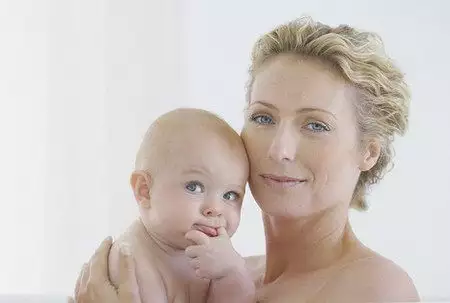Neurodevelopmental disorders is a broad term encompassing a range of abnormalities in both the motor, intellectual and social development of a child. Often early detection of such disorders can facilitate appropriate management of the child and enable further undisturbed development.
Ad:
Speech development, on the other hand, progresses through a phase of babbling, babbling, syllabifying and then pronouncing single words and increasingly complex sentences. As early as the third month of life, the child begins to babble in order to perfect speech in the following months and pronounce single words around the age of 10-12 months. In the case of speech development disorders we can distinguish between simple speech retardation, when the development of speech is inadequate to the child's age, or the development of the child's own "speech", which is incomprehensible to those around him or her, or mutism, i.e. a complete lack of verbal expression despite the fact that the child understands the instructions given to him or her. The causes of speech development disorders are abnormalities of the speech apparatus, hearing impairment or damage to the central nervous system. In some cases, there are psychological or psychiatric causes, such as autism.
Social development progresses through a stage of making brief eye contact with caregivers, usually the mother, then maintaining this contact for longer, reciprocating a smile, recognising people in the immediate environment and signalling fear of strangers by crying, reaching out to the mother and demanding physical contact. Disturbing symptoms include a lack of interest in the environment, people and objects, a lack of eye contact, and an aversion to physical contact. The causes of such disorders often include pathology in the visual system (eye defects, retinopathy of prematurity, optic nerve atrophy) and in the central nervous system. In older children, a reluctance to make eye contact and to cuddle, coupled with stereotypical, constantly the same games, may be indicative of autistic traits.

photo ojoimages
All of the described abnormalities in a child's development are referred to as delayed psychomotor development or neurodevelopmental disorders. If one or more of these developmental abnormalities are found, the child should first be seen by a primary care doctor or paediatrician. The aim of the visit is for the doctor to confirm any abnormalities and to refer the child for further specialised examinations . Children with neurodevelopmental disorders are primarily referred to a paediatric neurologist and also to a psychologist, paediatric psychiatrist or audiologist for a hearing assessment. These examinations are carried out on an outpatient basis and, in selected cases, in a hospital setting. This applies mainly to the youngest children, those presenting with significant psychomotor retardation or those requiring general anaesthesia for central nervous system imaging examinations, such as CT or MRI scans. The results of all these additional examinations are analysed by a specialist paediatric neurologist, who refers the child for further appropriate treatment, such as motor rehabilitation, speech therapy exercises, psychological care for the child and family or hearing aids.









